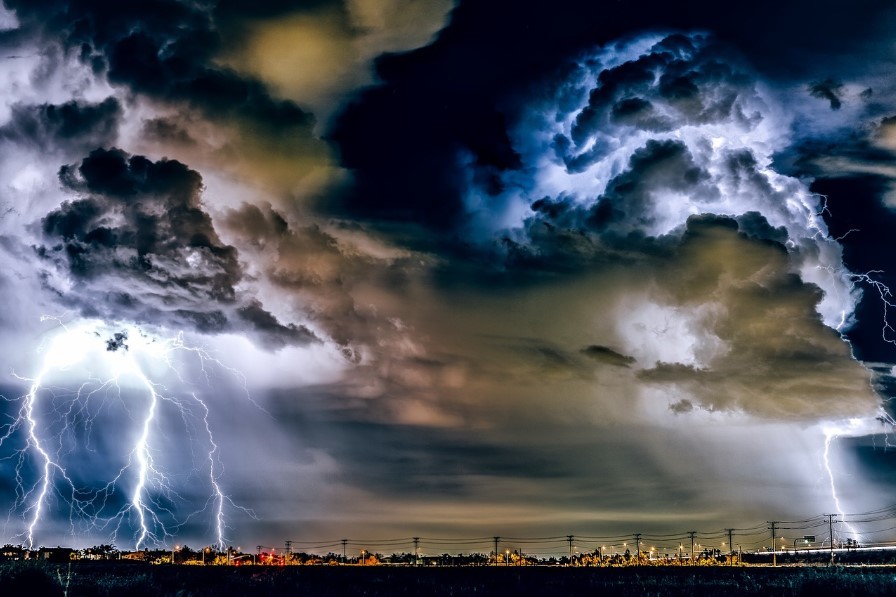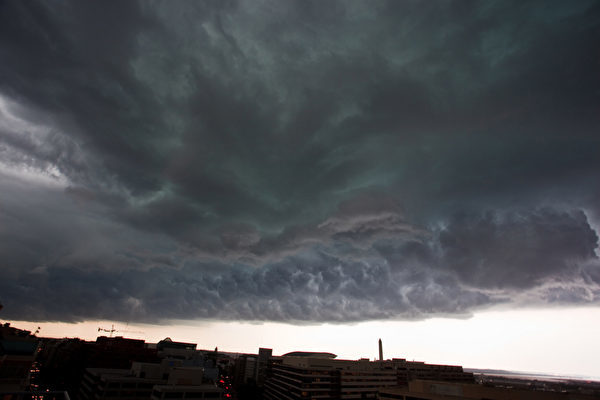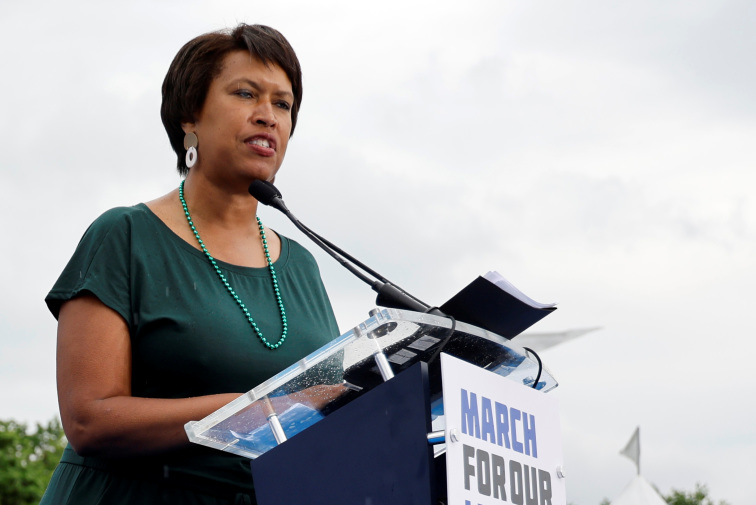Heavenly signs and phenomena often correspond to the rise and fall of dynasties, the fortunes and misfortunes of the world, and the blessings and disasters of mankind. (pixabay)
People News - On the last day of 2024, as usual, the CCP’s Politburo Standing Committee attended the CPPCC New Year Tea Party, where Xi Jinping delivered a speech. However, compared to a year ago, the tone of the content had notably shifted. Xi’s speech had to adhere to the Politburo’s approved messaging, leaving no room for exaggeration. The New Year’s greetings released by state media on the same day also followed this trend, revealing the awkwardness of the CCP leadership’s year-end political theatrics.
The CCP Leader’s Speech Toned Down
A year earlier, at the December 29, 2023, CPPCC tea party, Xi Jinping had given a speech summarizing the past year and looking forward to the next. At the time, Xi declared that in 2023, “We firmly overcame internal and external difficulties, worked hard with courage and determination, promoted economic recovery and development, and successfully achieved the main economic and social development targets. The total economic output is expected to exceed 126 trillion yuan...”
A year later, Xi’s 2024 speech merely stated, “We calmly responded, implemented comprehensive measures, and successfully accomplished the year’s primary economic and social development goals.”
Comparing the two speeches, the evaluation of the past year’s work was clearly toned down. This adjustment likely did not align with Xi’s personal preferences but was ultimately dictated by the Politburo’s resolutions.
On December 6, the CCP held a consultation meeting with non-party members to ostensibly solicit their opinions on economic work. In reality, the meeting aimed to preemptively set the tone for 2024’s economic efforts. At that meeting, Xi said, “This year, facing an increasingly complex international and domestic environment,” the CCP Central Committee “held firm under pressure, overcame difficulties... and took new solid steps in advancing Chinese-style modernization.”
Three days later, on December 9, the Politburo held a meeting to summarize the 2024 economic work. The meeting did not mention the “increasingly complex international and domestic environment,” nor did it highlight “holding firm under pressure, overcoming difficulties,” or even reference “Chinese-style modernization.”
The Politburo apparently did not endorse the narrative of “holding firm under pressure and overcoming difficulties” under Xi’s leadership, nor did it approve of the slogan “Chinese-style modernization.”
By the end-of-year CPPCC tea party, when Xi again addressed non-party members, he had to repeat the Politburo’s more subdued messaging. This indicated that speechwriters were no longer taking instructions solely from Xi.
A year earlier, at the 2023 tea party, Xi had claimed, “Our achievements were hard-earned and noteworthy. We created new opportunities, gained strategic initiative amid crises, challenges, and changes, and greatly enhanced our confidence and strength.”
This year’s speech only stated, “The development journey over the past year has been extraordinary, and the achievements are encouraging,” without mentioning “creating new opportunities,” “gaining strategic initiative,” or “confidence and strength.”
The self-imposed downgrading of the CCP leader’s speech was likely the result of constraints imposed by the Politburo or its Standing Committee. This further underscored the evident weakening of Xi Jinping’s “core” status. During Xi’s speech, those attending the tea party appeared indifferent. The other Politburo Standing Committee members also looked solemn, exchanging glances without any smiles. The atmosphere was entirely devoid of New Year’s cheer.
What Does the Outlook for 2025 Reveal?
At the CCP’s CPPCC tea party a year ago, when the CCP leader gave his outlook for 2024, he emphasized the need to “steadily and solidly advance the construction of Chinese-style modernization.”
In this year’s speech looking ahead to 2025, he only mentioned completing the goals and tasks of the “14th Five-Year Plan” and omitted any reference to “Chinese-style modernization.”
This aligns with the tone set at recent Politburo meetings. “Chinese-style modernization,” a slogan that the CCP leader has repeatedly emphasized in recent years, was conspicuously absent from plans for 2025 presented on behalf of the “Party Central Committee.”
A year ago, Xi Jinping concluded his speech by specifically emphasizing that “Chinese-style modernization” was the “central task of the Party and the country in the new era and on the new journey” and “the greatest political priority in the new era.”
This year, the CCP leader’s speech made no mention of “Chinese-style modernization” as a “central task” or “greatest political priority.” It suggests that the Politburo currently lacks a true “core” leader and cannot clearly define a “central task.” Instead, the party appears mired in factional and power struggles, with no one willing to concede to the other.
A year ago, when outlining the vision for 2024, Xi Jinping mentioned “achieving high-level technological self-reliance and self-strengthening” and “comprehensively advancing rural revitalization,” offering some concrete goals. However, in summarizing 2024’s work this year, he only noted that “significant progress was made in technological innovation” and said nothing about “rural revitalization.” This suggests that the original goals for 2024 were largely unfulfilled.
Curiously, Xi Jinping’s outlook for 2025 included a remark that “there will not only be calm and sunny days but also strong winds, heavy storms, and even tempestuous waves.”
This seems to foreshadow an even bloodier and more turbulent power struggle within Zhongnanhai in 2025. However, it also gives the impression that the CCP leader himself has little energy left to handle it.
A Listless New Year’s Message
On December 31, the CCP’s state media released Xi Jinping’s New Year’s message for 2025. Compared to the previous year, it showed notable changes.
In Xi’s 2024 New Year’s message, the first sentence of each of the first four paragraphs summarizing 2023 read:
“This year, we walked with firm steps.”
“This year, we walked with great strength.”
“This year, we walked with remarkable spirit.”
“This year, we walked with evident confidence.”
These phrases seemed designed to project a certain mindset. By the end of 2023, the CCP’s political and military systems were already descending into chaos, and Xi faced growing internal criticism. However, he likely believed he still held firm control, with his appointees remaining loyal and his dominance over Politburo decision-making intact. Consequently, his speech at the time was boastful, reflecting his confidence. The speechwriters likely adhered closely to Xi’s personal directives.
Back then, Xi’s address was filled with high-sounding, self-congratulatory rhetoric. Yet, a year later, the situation had changed dramatically. In summarizing 2024, Xi’s 2025 New Year’s message was notably devoid of such praise, reflecting a shift in the instructions given to the writers.
An unusual element in the speech was Xi’s reference to the “Six-Foot Alley” tradition of yielding as a familial virtue passed down through generations. This had previously been interpreted by external observers as a hint that Xi might be preparing to step down. Normally, the CCP would avoid revisiting this topic to steer clear of speculation, yet its inclusion in the limited space of the New Year’s message seemed like a deliberate allusion—possibly even a fabrication to stir intrigue where none existed.
In his 2024 New Year’s message, Xi had opened his outlook for the year by declaring, “We must unwaveringly advance Chinese-style modernization.” This year, however, there was no such statement. Instead, he acknowledged, “The current economic operation faces new challenges, including the uncertainties of the external environment and the pressures of transitioning from old to new growth drivers.”
Compared to the previous year, Xi’s 2025 New Year’s message felt lackluster. Once again, the various hardships endured by the Chinese people were left unmentioned.
On the final day of 2024, Xi Jinping, Cai Qi, and Ding Xuexiang also met with representatives of advanced groups and individuals among retired cadres for a photo session. While the participants were instructed to clap frequently, most refrained from even forcing smiles. Instead, their expressions appeared curious, as if wondering how far the CCP leadership’s theatrics could go.
Zhongnanhai is undergoing a political earthquake. Despite repeated appearances and performances by the CCP leadership at year’s end, each attempt has revealed their awkwardness. The political turmoil of 2024 within the CCP was impossible to conceal, and 2025 looms with even greater uncertainties.
(Dajiyuan)











News magazine bootstrap themes!
I like this themes, fast loading and look profesional
Thank you Carlos!
You're welcome!
Please support me with give positive rating!
Yes Sure!